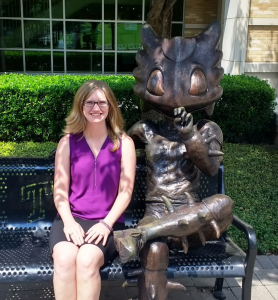by Tanya Brown
One of the many questions I asked myself during my PhD training was “What kind of job will I get once I graduate?” This is quite a common question with many possible answers. With so many PhDs hitting the job market, where do all of us go?
It can be quite a challenge to figure out how to answer this question. Where do students go once they graduate? What do postdocs do once they are ready to move on? This sort of information would be useful for prospective graduate students and postdocs to know before they tackle academia. Career outcomes can reflect, at least in part, institutional training goals and values. Trainees deserve to know the environment that they are entering before devoting years to graduate school or postdoctoral training. Since this sort of tracking information is required for NIH training grants, it seems like this type of information is collected, at least by some programs, but may be challenging to sort through and organize at departmental and institutional levels. Communicating the results then presents a whole other set of challenges. Continue reading

 “I want to go swim, mom! Let’s go!!” It’s mid January and I’m taking a walk with my four year old son who LOVES the beach. Instead of saying no, I tell him that I don’t want to swim because it’s too cold. “You can go ahead and take off your socks and shoes and put your toes in, but it’s pretty cold”. He does – giggles and squeals of excitement emanate through Madrona Park. He runs back, sheepishly telling me that it’s too cold for swimming and puts his socks and shoes back on, but he has a huge grin on his face. We keep walking and meet my partner who has our baby bundled up in a stroller.
“I want to go swim, mom! Let’s go!!” It’s mid January and I’m taking a walk with my four year old son who LOVES the beach. Instead of saying no, I tell him that I don’t want to swim because it’s too cold. “You can go ahead and take off your socks and shoes and put your toes in, but it’s pretty cold”. He does – giggles and squeals of excitement emanate through Madrona Park. He runs back, sheepishly telling me that it’s too cold for swimming and puts his socks and shoes back on, but he has a huge grin on his face. We keep walking and meet my partner who has our baby bundled up in a stroller. 